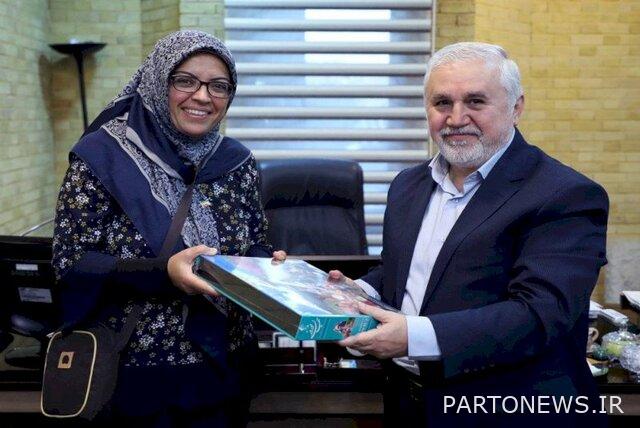UNESCO appraiser’s interest in Masoleh

At the end of the investigation of Masoleh, whose file has been opened for global registration in UNESCO, the UNESCO evaluator said: Before Icomos gave me the file of Masoleh, I had no knowledge about it, and after studying this file, I became interested in it, and when I came to Iran And seeing this city up close, I realized that I had only read the cover of the book and discovered new pages of Masuleh and it was recorded in my mind.
According to Isna, Masoleh Stepped Village was registered in the list of national monuments of the country in 1354. In 2007, its case was included in the temporary list of UNESCO heritage due to its architecture and local culture, but it was never given the opportunity to be examined and registered globally.
Now, after 15 years, the case of the cultural landscape of Masuleh has been opened in UNESCO and the evaluator of this cultural organization has also conducted field investigations from the 6th to the 11th of October 1401.
At the end of her work in Masoleh, UNESCO evaluator Naimeh Benkari had a meeting with the Deputy Minister of Cultural Heritage, Tourism and Handicrafts, who expressed her initial opinion about this case, which had many obstacles on the way to its registration.
According to him, Masuleh has a lot of good values in terms of architecture and besides that, it has a human aspect that is remarkable. There is always a perception in cultural heritage issues that when you want to protect cultural heritage, you should preserve only the physical body and ignore the spirit of the work, but this perception is wrong. In Masuleh, in addition to the physical body being preserved, the soul and life flow. We should not ignore the spirit of a historical cultural work.
The UNESCO evaluator also said: The issue that caught my attention in Masuleh was that in this city, while its buildings have been preserved in a traditional way, electricity has been installed in such a way that it did not disturb the traditional image and did not dominate its modernity. Is.

Naimeh Benkari also said in the meeting with the governor of Gilan: Masuleh has a lot of potential to join and become a world site. Modern life has not made any special changes in the traditional architectural context of Masuleh and its civilization has been preserved.
Ali Darabi, the deputy of cultural heritage, explained in the meeting of the UNESCO assessor that Masuleh is one of the three cases that have been completed and sent to UNESCO, along with the cases of “Iranian caravanserais” and “Dizmar”.
The Deputy Minister of Cultural Heritage, Tourism and Handicrafts also said about the special feature of Masuleh to be registered in the UNESCO World Heritage List: Life in the true sense is flowing in Masuleh and this city has become a symbol of beauty for us Iranians. Fortunately, the people of the region cooperated well for the global registration and feel a sense of global responsibility towards this case. I hope that with the support of Ms. Naimeh Benkari in the International Heritage Committee, Masuleh will be included in the world register and your good name (Naimeh Benkari) will be remembered for the people of Iran and the world who worked for the world registration of this work.
Mustafa Pourali – General Director of Registration and Privacy of Works and Preservation and Restoration of Spiritual and Natural Heritage – also pointed out new strategies of the Deputy Minister of Cultural Heritage, Tourism and Handicrafts for global registrations in the meeting attended by the UNESCO assessor and said: standards and after experts’ review, it was decided to send the Masuleh file to UNESCO this year. 10 works are ready to be sent to UNESCO, but we cannot send them all because of UNESCO’s annual limit.

Masuleh’s case is supposed to be examined in 2023 in UNESCO. Currently, Iran has registered 26 works in the UNESCO World Heritage List, which, considering the opinion of the UNESCO evaluators about the case of caravanserais and Masuleh, is very hopeful that this World Heritage List will be longer.


